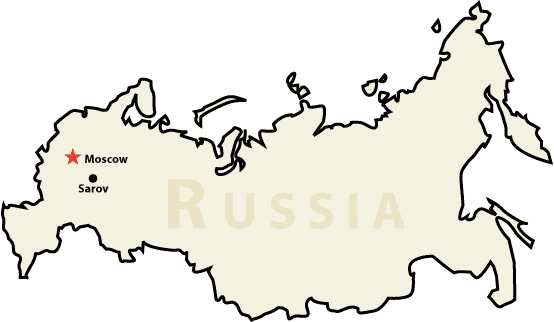One of three Russian scientists arrested in February 2018, on charges of using a classified government computer to mine cryptocurrency has been fined 450,000 rubles, equivalent to US$7,000. Denis Baykov, a former employee of the Federal Nuclear Center in Sarov, Russia, has been found guilty of violating the computer lab’s policies, according to court documents. Baykov pleaded guilty after the arrest, his lawyer told state-owned media outlet RT.
Baykov, who was said to be only involved with connecting the computer, was charged with “unlawful access to computer information.” In addition to the fine, he will also be forbidden from holding positions in the public service and in local authorities for two-and-a-half years.
 Baykov was arrested along with two other staff members Andrei Rybkin and Andrei Shatokhin, who have also pleaded guilty and are still facing legal action. According to court documents sourced by RT, they are charged with “unlawful access to computer information,” “creation, use and distribution of malicious computer programs,” as well as “violation of the rules for the operation of means of storage, processing or transmission of computer information and information and telecommunication networks.”
Baykov was arrested along with two other staff members Andrei Rybkin and Andrei Shatokhin, who have also pleaded guilty and are still facing legal action. According to court documents sourced by RT, they are charged with “unlawful access to computer information,” “creation, use and distribution of malicious computer programs,” as well as “violation of the rules for the operation of means of storage, processing or transmission of computer information and information and telecommunication networks.”
A lawyer for the accused reported to RT that his clients didn’t mine for profit, but out of professional interest, as a means to validate their programming talents. He also said they regret their actions.
Reports citing news service Mash said the group’s illicit activities were detected when they attempted to connect the classified nuclear resource to the internet. According to the lawyer cited by RT, the men mined some currency before they were stopped. The number of units of bitcoin mined, or the total value, has not been disclosed.
The three men were in the employ of the Russian Federal Nuclear Center – the All-Russian Scientific Research Institute of Experimental Physics (RFNC-VNIIEF), located in the Russian city of Sarov. The site is home to a 1 petaflops (peak) supercomputer, installed in 2011. The classified nuclear resource is not publicly ranked, although it’s purported to have a Linpack score of 780 teraflops.
At the time the arrests were made, the nuclear center’s press service attested that no harm had come to the facility. “Thanks to joint work with security agencies, this activity was suppressed in a timely manner,” the official statement noted. “The bungling miners have been detained by the competent authorities. As far as we are aware, a criminal case has been opened. Please note that such attempts have recently been recorded in a number of large companies where there are powerful computing resources. At our enterprises, such actions will be severely suppressed; this is a technically unpromising and criminally punishable activity.”
The closed city of Sarov is where USSR’s first nuclear bomb was produced leading to the testing of “First Lightning” on August 29, 1949. The city is overseen by Rosatom, Russia’s nuclear energy corporation.




























































